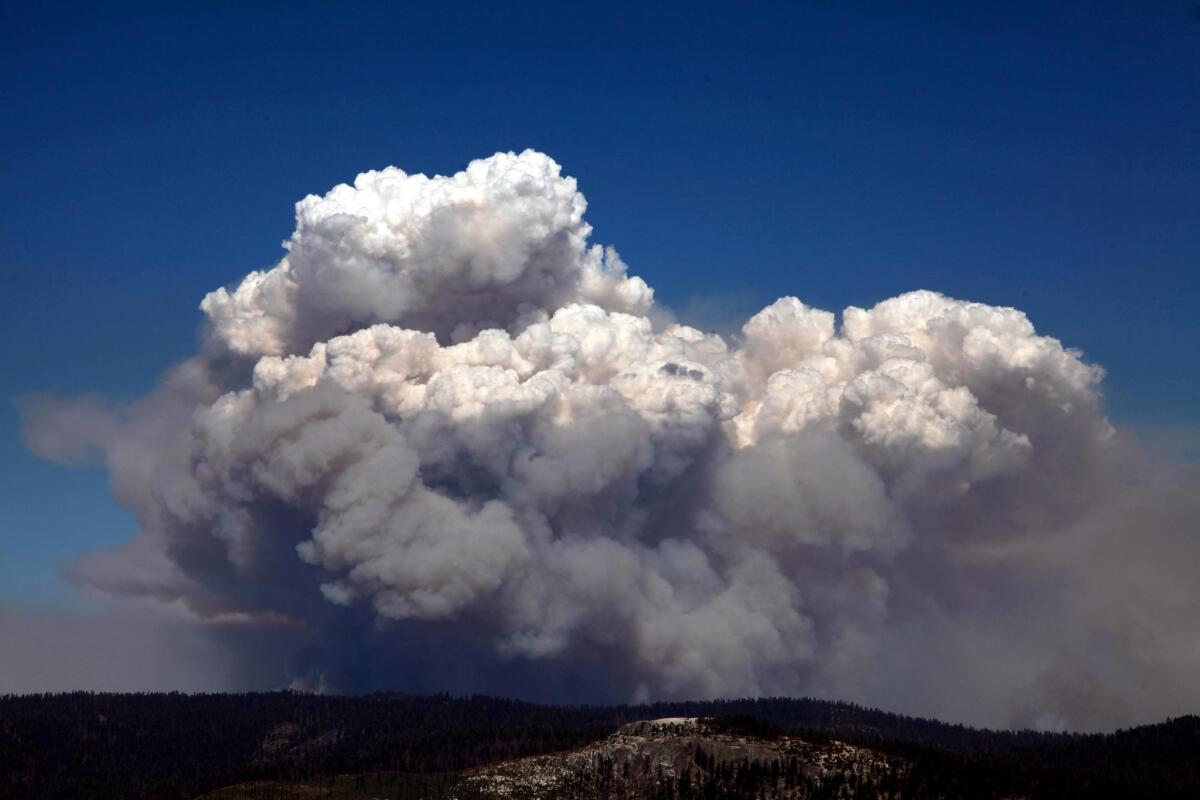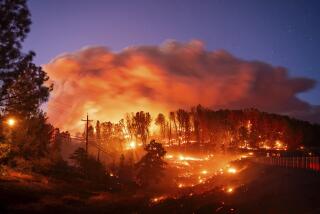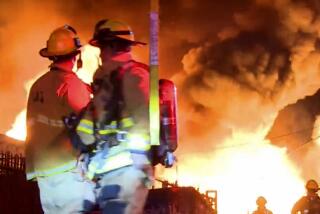Bow hunter accused of sparking massive Rim fire with illegal campfire

The deer hunter charged with setting the Rim fire in 2013 -- one the largest in California’s history -- ignored temporary restrictions put in place for national forest land and kindled a fire that spread beyond his control, federal prosecutors allege.
The fire, which started Aug. 17, 2013, in a remote area of the Stanislaus National Forest, would go on to burn more than 250,000 acres to become the state’s third largest wildfire, devouring chaparral and oak as it chewed through the western border of Yosemite.
Ten people were injured and more than 100 structures destroyed during the nine weeks that the blaze burned. Officials said the firefight alone cost more than $125 million; the total damage was estimated at hundreds of millions of dollars more.
Keith Matthew Emerald of the Sierra foothills town of Columbia, Calif., was charged with two felonies: setting timber afire and lying to a government agency, the U.S. Attorney’s Office announced Thursday. He also was charged with two misdemeanors: violating a fire restriction order, and leaving a fire unattended and unextinguished.
He was bow hunting deer at the time.
In a signed affidavit, Emerald wrote that he used pine needles, twigs and a lighter to start his campfire.
“After cooking a meal and burning the rest of my trash, some embers were blown up the hill and caught the brush on fire,” he wrote. “The terrain was almost vertical, so I ... couldn’t put it out.”
In earlier interviews with investigators, however, Emerald had blamed a rockslide or possibly an illegal marijuana grow.
But during a third interview in early September, officials said, Emerald admitted that he was afraid of retaliation from the community and asked investigators if his name could be kept out of the media “until snow falls.” (Authorities announced in early September that the fire was sparked by a hunter’s illegal campfire, but did not release Emerald’s name until Thursday.)
“The Rim fire was one of the largest in California history and caused tremendous economic and environmental harm,” U.S. Atty. Benjamin B. Wagner said in a statement Thursday. “While those harms cannot be undone, today we have brought criminal charges relating to the cause of that fire.”
Follow the reporter on Twitter: @katemather
More to Read
Sign up for Essential California
The most important California stories and recommendations in your inbox every morning.
You may occasionally receive promotional content from the Los Angeles Times.











